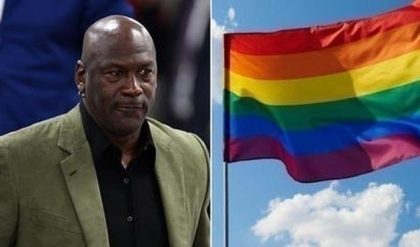
In a groundbreaking move that has shocked the sports world, the NCAA has officially stripped Lia Thomas of her titles and all associated medals, citing violations of competition policies. The decision, which comes after months of controversy and heated debate surrounding Thomas’ participation in women’s swimming, has led to widespread reactions across the nation.
However, in a surprising twist, Riley Gaines, the swimmer who was most vocal in her opposition to Thomas’ eligibility, is poised to regain everything that was lost. Thanks to powerful forces outside of the NCAA, it appears Gaines will have the opportunity to reclaim the titles and medals that she lost to Thomas in various competitions.
Lia Thomas made history as the first openly transgender woman to win an NCAA Division I national championship, a feat that earned both admiration and fierce opposition. Critics, particularly in the women’s sports community, argued that Thomas, a biological male, had an inherent advantage over female athletes due to physical differences developed during male puberty. This controversy reached its peak when Thomas won the 500-yard freestyle at the NCAA championships, leading to calls for a reassessment of the NCAA’s policies regarding transgender athletes.
The NCAA’s ruling this week marks a pivotal moment in the ongoing debate about fairness in women’s sports. While the organization has stated that it supports the inclusion of transgender athletes, it has also acknowledged that the situation with Thomas raised questions about competitive equity. The NCAA’s decision to strip Thomas of her titles and medals is seen as a response to mounting pressure from both athletes and advocacy groups.
Riley Gaines, a former NCAA swimmer and outspoken critic of Thomas’ participation, has emerged as the major beneficiary of the NCAA’s decision. Gaines, who finished behind Thomas in several high-profile races, has been relentless in her fight for fairness in women’s sports. Her advocacy on behalf of female athletes has earned her a strong following, but also made her a polarizing figure in the debate over transgender inclusion in athletics.
With the NCAA’s recent ruling, Gaines is set to receive the titles and medals that were once thought to be out of her reach. External forces, including legal challenges, public pressure, and support from various advocacy groups, have played a significant role in making this happen. It’s a major victory for Gaines, who has long maintained that her efforts were not just about her personal achievements but about protecting the integrity of women’s sports.

While this ruling may seem like a victory for Riley Gaines, it also raises important questions about the future of transgender athletes in competitive sports. Will other NCAA athletes in similar situations be similarly affected? What will this mean for the broader conversation about inclusivity in sports? The decision to strip Thomas of her titles is a powerful message to athletes, coaches, and governing bodies that the issue of fairness in women’s sports remains a critical concern.
As this story continues to develop, all eyes will be on the NCAA and other sports organizations to see how they navigate the complex intersection of gender identity, fairness, and competition. Riley Gaines’ victory could be just the beginning of a new chapter in this ongoing debate, one that will have lasting implications for the future of women’s sports.
In the meantime, Riley Gaines is basking in the recognition of a hard-fought victory. With support from a variety of powerful voices, she stands ready to reclaim what is rightfully hers, but the fight for fairness in sports is far from over. As the landscape continues to shift, athletes, coaches, and fans alike will be left to wonder what the future holds for sports in the era of inclusion and equality.





